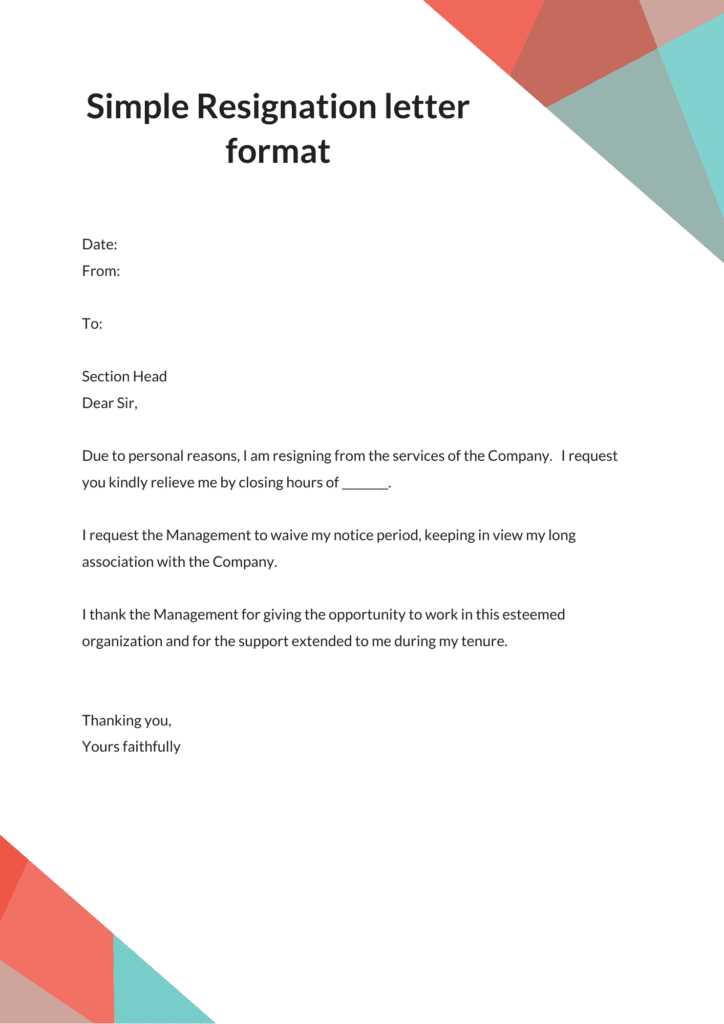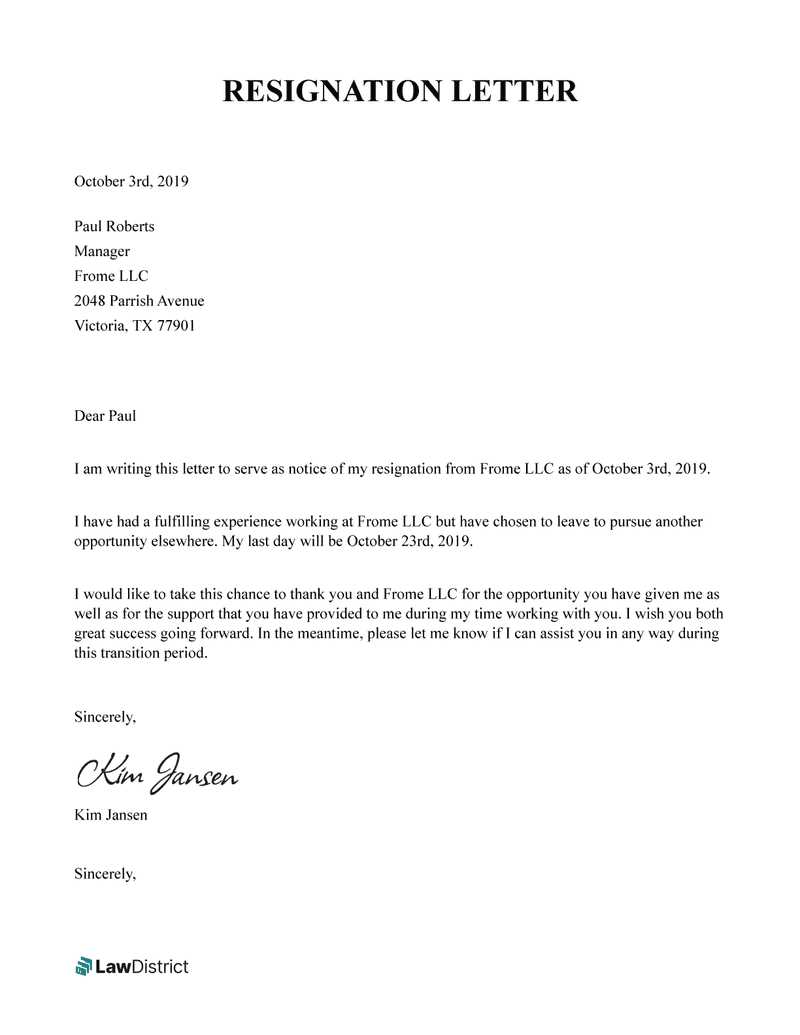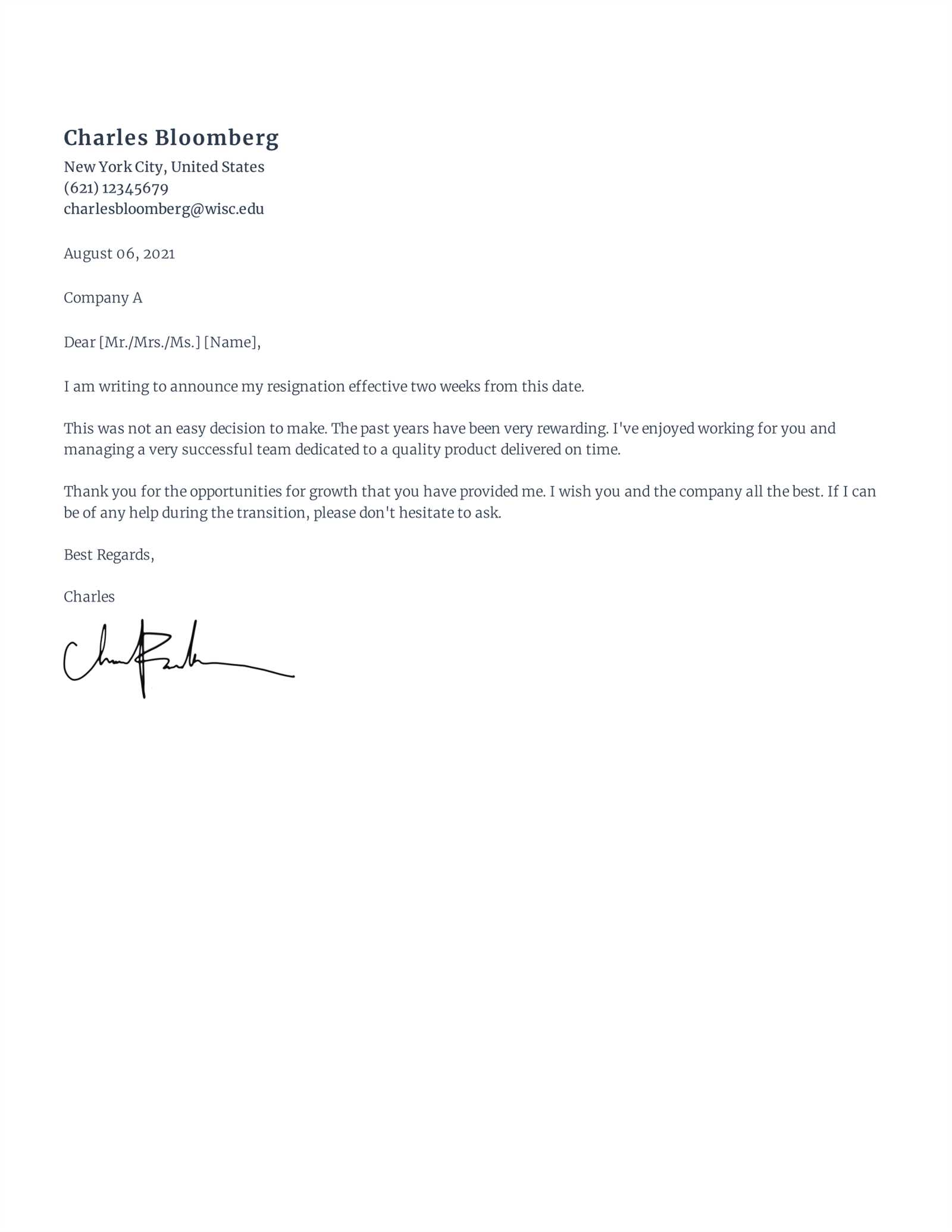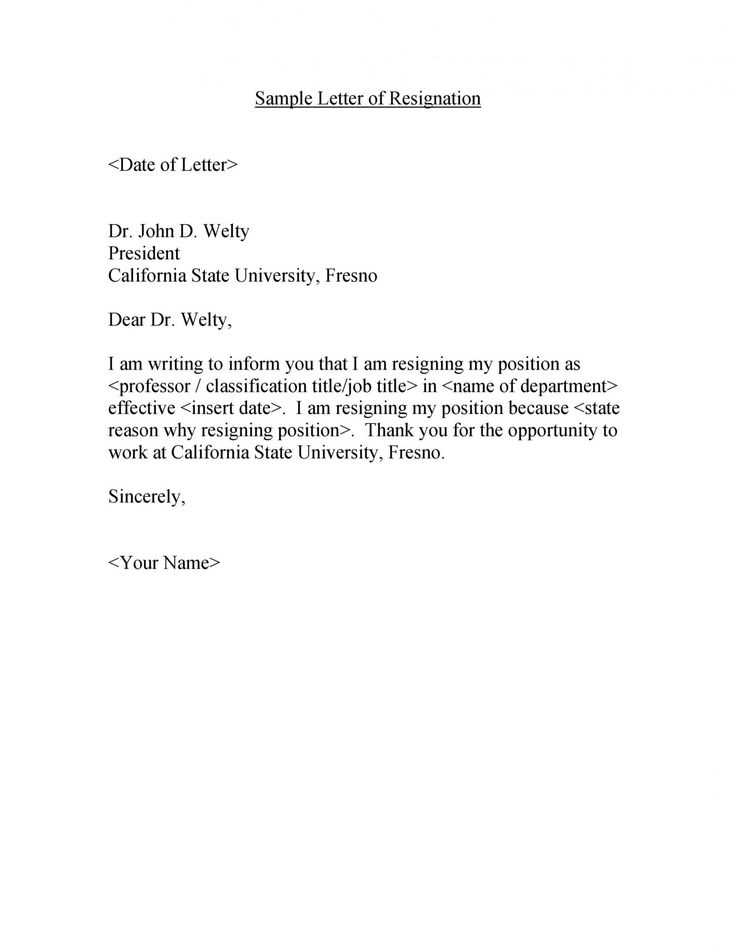Short and Simple Resignation Letter Template

When it’s time to leave a position, crafting a brief, respectful message can leave a lasting impression. A well-structured note ensures professionalism and clarity, helping maintain positive relationships with employers and colleagues. Keeping the tone polite and to the point allows for a smooth transition while respecting the company’s time and your own.
Key Points to Include
While each farewell differs, a few essential elements should be present in your message:
- Intent to Depart – Clearly state your decision to move on without unnecessary elaboration.
- Appreciation – Acknowledge the experiences and opportunities you’ve gained during your time with the company.
- Last Day – Indicate the date of your departure to ensure clear communication about your transition.
Keeping It Concise
It’s important not to over-explain the reasons for leaving. Focus on the positive aspects of your time spent with the organization, while maintaining a straightforward tone. The goal is to keep the message professional, not delve into personal details.
Examples of a Professional Farewell
Here are a few concise options you might consider for your message:
- After careful consideration, I have decided to pursue new opportunities and will be leaving my position as of [date]. I want to thank you for the support and guidance during my time here.
- Thank you for the opportunity to be part of the team. My last working day will be [date], and I’m grateful for everything I’ve learned during my tenure.
Writing a Clear Farewell Message
When preparing to leave a job, conveying your departure in a concise and respectful manner is crucial. A clear message helps maintain professionalism and ensures a smooth handover, leaving no room for confusion. By focusing on key details and maintaining a courteous tone, you can craft a message that reflects positively on both you and the company.
Why Choose a Brief Goodbye

A succinct note avoids unnecessary elaboration while still conveying your intentions. It shows respect for the time of both parties involved and creates a streamlined communication process. A direct, thoughtful farewell helps preserve a professional relationship with the employer, leaving the door open for future opportunities.
Key Components of an Effective Farewell

Focus on including these fundamental elements in your message:
- Confirmation of Departure – Clearly mention the decision to leave and the date of your last day.
- Gratitude – Acknowledge the experiences, skills, and growth you’ve gained during your time in the role.
- Professional Tone – Keep the message respectful and avoid overly personal or emotional content.
By sticking to these essentials, your message will reflect a balance of clarity and courtesy.
Examples of a Clear Departure Message

Here are a couple of examples of well-structured farewell messages:
- I would like to inform you that I have decided to pursue new challenges, with my last day of work being [date]. I greatly appreciate the opportunity to have worked here.
- Thank you for the support and collaboration over the past [duration]. My final day will be [date], and I’m grateful for everything I’ve learned.
These examples maintain professionalism while expressing gratitude, offering a clear and respectful farewell.